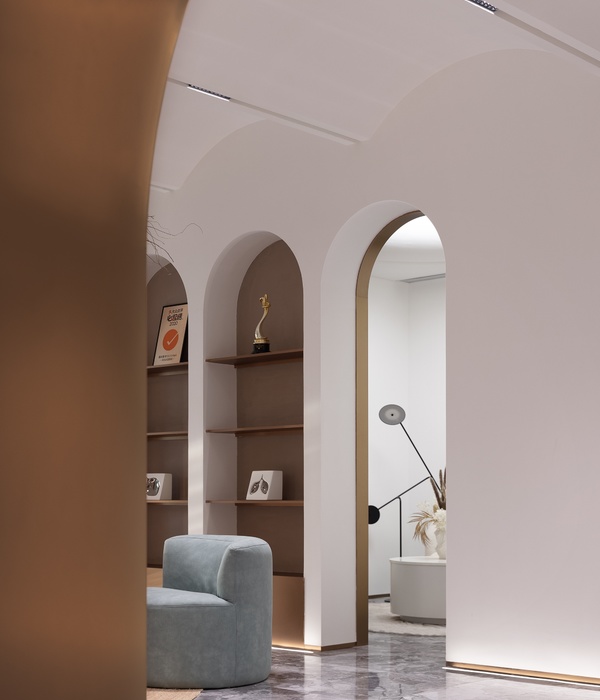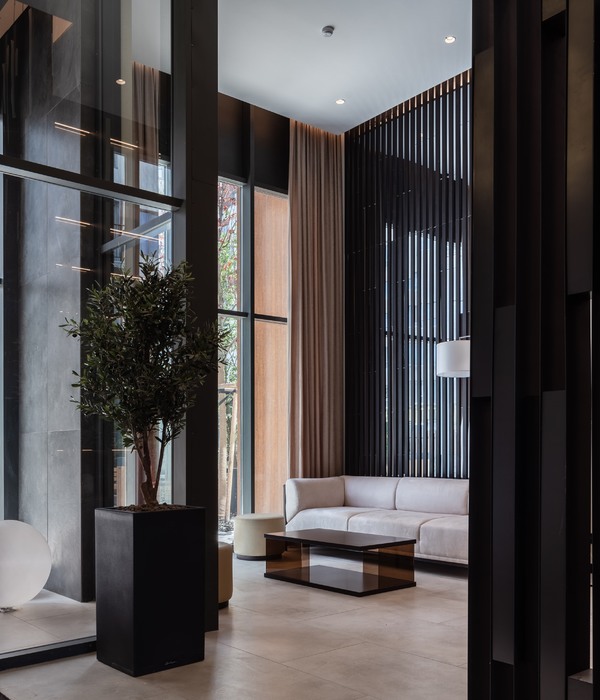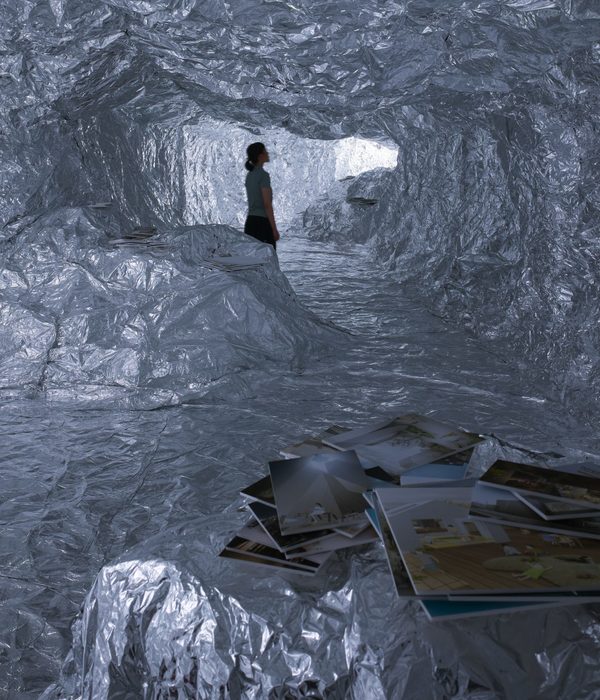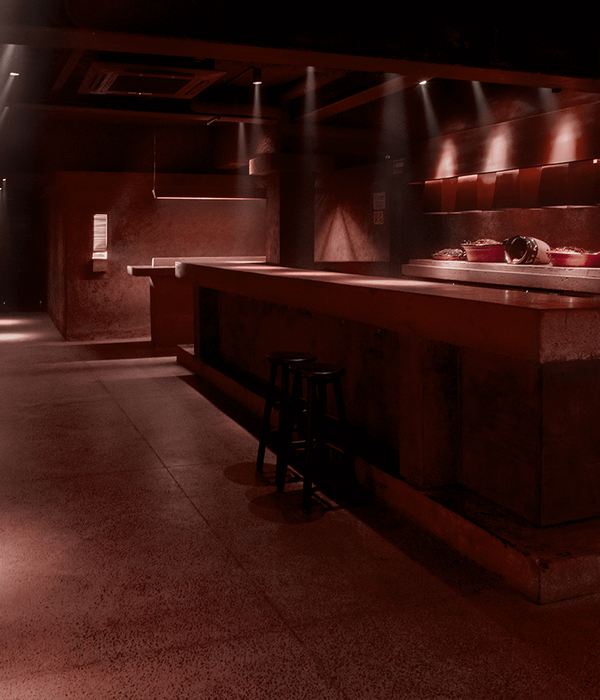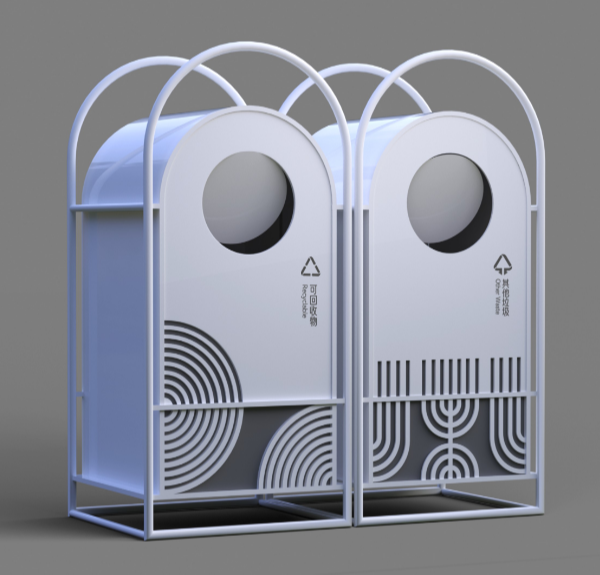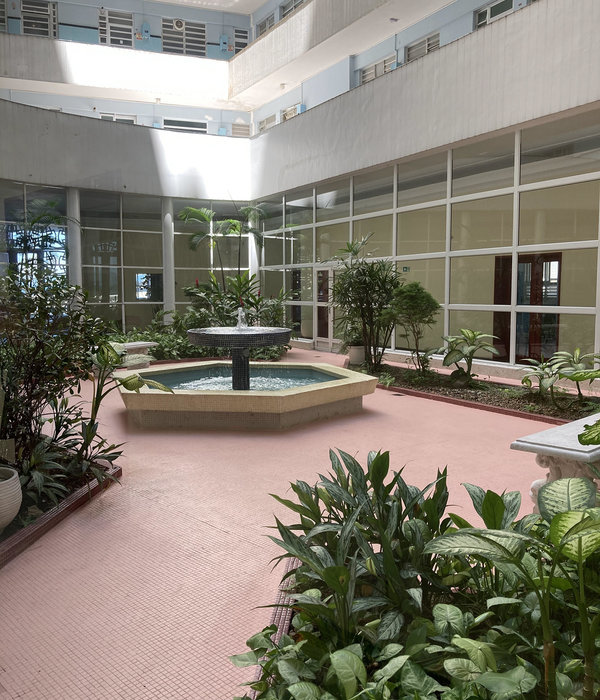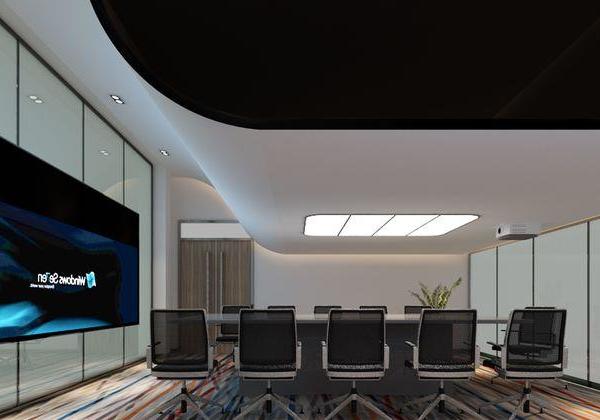Architects:Studiolada
Area :958 m²
Year :2017
Photographs :Luis Diaz Diaz
Manufacturers : FAKRO, Saint-Gobain, BANGUI ENTREPRISE, DOLD, Raico S.A.FAKRO
Lead Architects :Xavier Geant & Benoit Sindt
Associate Architect : DPLG, Benoit Sindt
Technical Consultants : JM Structures & Terranergie & Tecnos
City : Laxou
Country : France
The Meurthe et Moselle Departmental media library, heart of a network of small reading structures and proximity, is intended to accommodate reading professionals. More than a media library, its goal is to train and inform these different people, following the principle of lending and reading spaces. The departmental library of Laxou therefore positions itself as a departmental center for public reading, with a fully assumed educational role.
The building is located in a sparsely populated urban area which has been developing slowly since the 1970s, consisting of individual houses (in the middle of the plot) and buildings such as the Prouvé College on the neighboring plot. The vegetation is quite present on and around the plot, including the park of Asnée estate. The district is established on a relatively pronounced landform, the plot itself presenting a steep slope. Thus the building has a high potential of exposure to sunshine and views onto the landscape.
The media library is made up of two distinct entities; the first, whose architecture is strongly marked by the time period during which it was built (cf. its zigzag roof), accommodates the book storage area as well as the garage intended for delivery and distribution vehicles (bibliobus). A second one contains the works presentation room, various administrative offices and premises, all necessary to enable this kind of building to function.
In its pre-existing configuration the departmental library of Laxou was not able to take into account the latest developments in the book industry and could no longer fulfill its role. Built in 1975 by the duo of architects Prouvé and André, both from Nancy, the building presents great constructive appeal; a free plan, organized by the installation of a cover of precast concrete modules resting on concrete posts.
The program needed to meet the needs of an increase in floor space, the resolution of problems linked to reduced mobility access, and thermic comfort during both summer and winter.
We based our intervention on a thorough diagnosis of the existing building - so as to limit the impact of the extension on the plot - while using the full potential of the original architecture. We proceeded with 3 different types of extensions:- A pre-existing patio cover, which gives 50m2 of supplementary surface to the reading room whilst creating a form which floods the heart of the media library with light.- An extension of 115m2. This extension, built on the front part of the existing building, becomes the entrance of the media library, whilst resolving the problem of accessibility at the same time. In effect a ramp has been created at the junction between the existing building and the new structure. This ramp is the access for all users of the library and is a true architectural promenade. It leads to the different offices situated on the rue de l'Asnée, as well as the works presentation space.- A new envelope. New facades are given to the building. These facades, made of wooden frames and insulated in cellulose wadding, are supported by the existing roof edges. This allows the creation of the 70sqm extension of the media library while ensuring the suppression of all thermal bridges. Acting as a coat, this facade envelops the building, as well as composing with its history. The extra thickness thus created makes it possible to bring natural light and thermal comfort, while integrating the various heating and ventilation networks; the system allows us to lighten the concrete box ceiling and also highlights it.
The re-thought Laxou media library now dialogues with its immediate and wider environment and turns towards the future, without ever denying its origins. There, are the real challenges of tomorrow; how to restructure, recycle and reinvent our architectural heritage.
▼项目更多图片
{{item.text_origin}}


